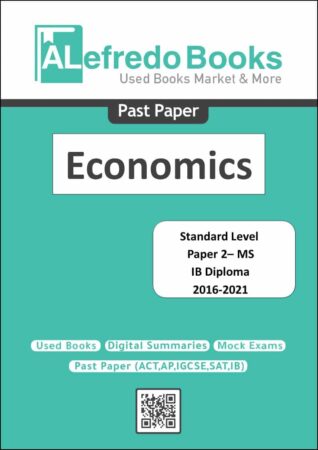
Economics Past Papers IB Standard Level Paper
To succeed in the IB standard level Economics examination, it is essential for students to learn from Economics Past Papers. The Economics past papers help students prepare for the exam and are very useful in revising for the examination. The IBO Economics exams are given over two days and the previous years’ answers are used for assessing a student’s knowledge. However, the IBO advises students to buy the two most recent complete sets of past papers.
IB students who are studying for the Economics Standard Level (SL) examination can benefit greatly from the economics past papers. The IB has introduced the new assessment model for this subject, which is holistic and requires students to be able to think critically about the subject. In this way, they can achieve the highest marks in their exams. For this reason, it is essential for students to study past papers. The International Baccalaureate website contains many Economics Past Papers and a variety of other resources.

There are nine key concepts in the new IB standard level paper
These principles are the basis of the IB curriculum and are required for all IB diplomas. Each paper requires students to demonstrate mastery of three concepts, which are based on economics. By studying the past papers, students can learn more about how to perform well on the IB standard level exam. For example, the revision of Paper 2 will require students to show that they are capable of graphic literacy.
Economics Past Papers for the IB Standard Level Exam are a valuable resource for students. The new assessment portfolio will require students to analyze three course concepts and a commentary. This emphasis will improve students’ conceptual understanding of the subject. And the revision of the IB standard level paper will make students more confident about their performance. And it is a great help for all students in the course. You can also purchase Economics Resources from the IB Follett online store.
The new assessment model emphasizes a holistic and critical understanding of the subject
Students will be able to develop a deeper understanding of economic concepts and issues through the use of theories, models, examples, and inquiries. In the new paper, students will need to demonstrate their conceptual understanding and analysis of three core concepts that they learned in their economics course. Aside from that, they will need to demonstrate their ability to write and analyze commentaries in English and in French.
The revised IB Economics syllabus includes three parts – Microeconomics, Macroeconomics, and International Economics. Each paper is worth 40 marks and has four compulsory parts. Each question is structured to test a student’s knowledge of the subjects and concepts. The questions are divided into sections and are categorized into two parts. Each part contains questions that cover the various aspects of the subject. A typical Economics Past Paper consists of five compulsory parts.
In addition to past papers, students can also study past exams to improve their performance
The revised Economics course requires students to use graphic literacy, as well as to analyze three different concepts and issues in real life. The course is highly interactive, and it is crucial for students to understand the concepts and methods that they learn. In this way, the IB Standard Level paper will help them prepare for the exam. These are also very useful if you are preparing for an Economics exam.
You can purchase past papers of Economics from the official IB Follett online store. Although the website is not the most intuitive, the IB standard level paper is an excellent resource for students preparing for the exams. There are also various online resources that can help students prepare for the tests. In addition to Economics Past Papers, you can also buy the Economics Exams and Markschemes. The Economics Exam Past Papers IB Standards Level Exams
The IB Economics Standard Level exam consists of two papers – P1 and P2, which are worth 40 marks. In the IB system, the Economics Internal Assessment comprises the remaining 20% of the grade for the course. The questions in Section A are relevant to the Microeconomics part of the syllabus, while those in Section B cover the Macroeconomics portion. They both equally significant and must passed for the best IB results.

Comments (0)